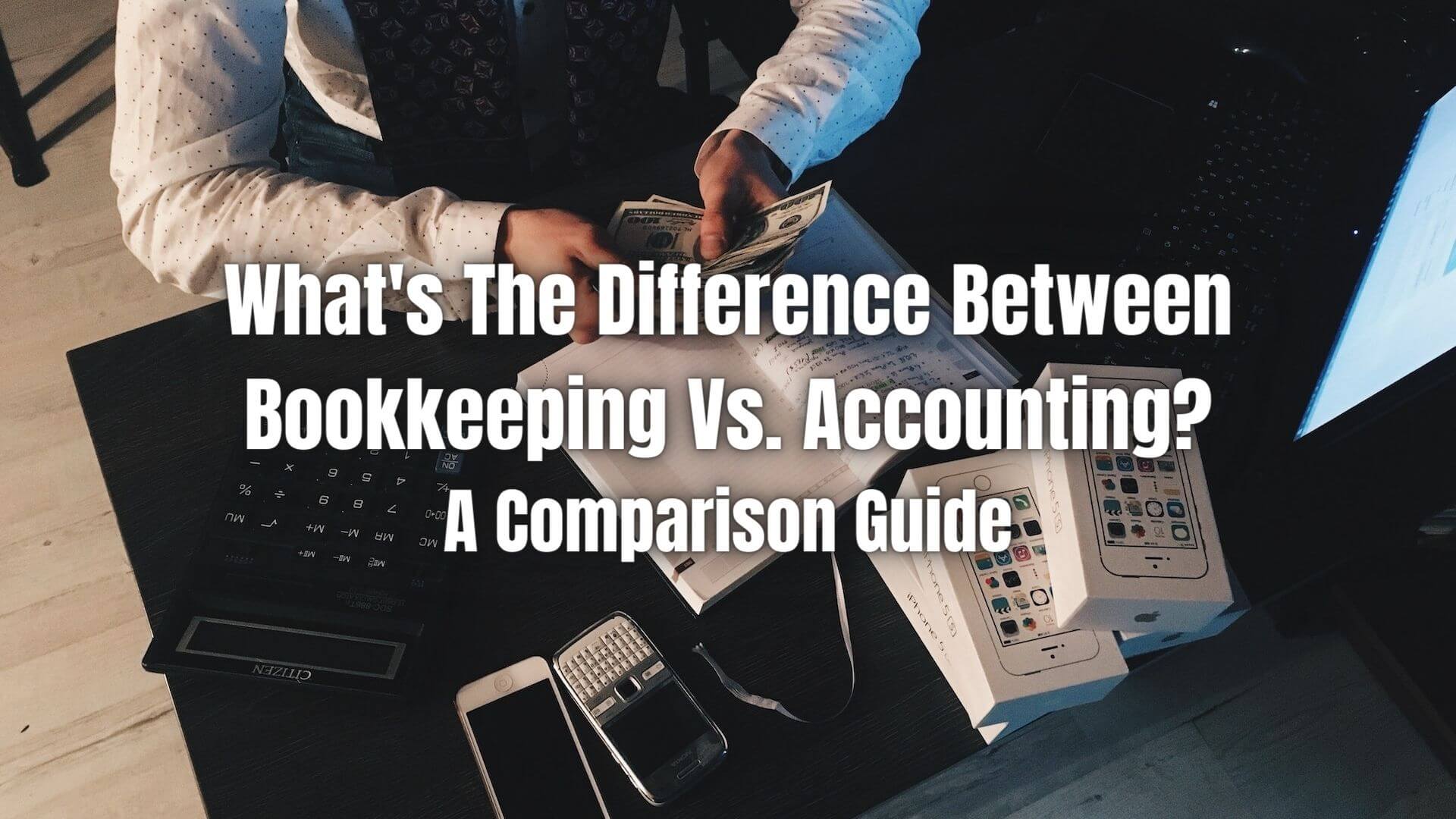Bookkeeping vs. accounting is two essential processes for any business. They both involve tracking, recording, and analyzing financial transactions to ensure your business remains profitable and compliant with legal regulations.
While bookkeeping and accounting serve similar goals, they have distinct differences in purpose, scope, and time frame. This article will provide a comparison guide between bookkeeping vs. accounting to help you better understand the roles of each process within your organization.
Bookkeeping Vs. Accounting: What’s the Difference?
Bookkeeping and accounting are essential functions in managing a business’s financial records. While they are related, they are far from being the same thing. To understand the functions and distinctions of each process, let’s talk about them separately:
Bookkeeping
Bookkeeping is the act of monitoring and recording daily financial transactions such as sales, purchases, payments, receipts, and other financial data in a systematic and organized manner. Bookkeepers are professionals who maintain accurate and up-to-date financial records, which include ledger accounts, income statements, and balance sheets. They record all transactions in journals and ledgers and produce reports to help business owners understand their financial performance.
Accounting
Accounting, on the other hand, is all about the analysis, interpretation, and reporting of financial data. It consists of taking the information the bookkeeper records and using it to prepare financial statements, tax returns, and other financial reports. Accountants also use financial data to advise business owners on ways to improve their financial performance.
What’s the Difference?
Bookkeeping records daily transactions, while accounting is about interpreting financial data to help businesses make informed decisions. Both bookkeeping and accounting are essential for maintaining accurate financial records and managing a business’s finances effectively. At the same time, bookkeeping is a more fundamental and time-consuming process, while accounting involves complex analysis and reporting.
Benefits of Bookkeeping and Accounting To Business
Bookkeeping and accounting play a crucial role in any business’s operation, success, and sustainability. Without bookkeeping and accounting, businesses would not have accurate records of their financial activities. With that said, here are vital benefits that bookkeeping and accounting bring to the table for any business:
Better in Financial Management
Bookkeeping and accounting provide crucial financial information to help a business owner make informed decisions. It helps the business owner to monitor cash flow, track expenses and revenues, and budget for future expenditures.
Facilitate Tax Compliance
Accurate bookkeeping and accounting ensure a business owner can comply with tax laws and regulations. It helps prepare financial statements and tax returns and file tax reports on time.
Provides Insights into Business Performance
Bookkeeping and accounting provide valuable information about the financial health of a business. It helps the business owner identify areas where the business is doing well and where improvements need to be made.
Facilitates Business Planning
Bookkeeping and accounting provide the necessary financial data to make informed decisions when planning for the future of the business. In addition, it helps to identify potential financial risks, opportunities for growth, and areas where resources can be better utilized.
Helps in Securing Funding
Accurate bookkeeping and accounting help secure funding from banks, investors, and other financial institutions. It provides financial statements that show the financial health and stability of the business, which is essential in securing loans and investments.
Bookkeeping and accounting provide essential financial information that helps businesses to make informed decisions, comply with tax laws, and plan for the future.
How ReliaBills can Help Bookkeepers and Accountants
Whether you’re a bookkeeper or an accountant, you will need billing software to help you track, manage, and send invoices to your clients. You need ReliaBills for all your invoicing and payment processing needs.
ReliaBills is a cloud-based invoicing and billing solution designed to automate payment processes, reduce administrative overhead, and streamline payment processing duties. ReliaBills’ payment processing features include automated recurring billing, payment tracking, payment reminders, online payment processing, and much more!
ReliaBills also offers tools that help manage customer information, monitor payment records, and create proper billing and payment collection reports. As a result, managing your invoicing and billing processes is simple without encountering any issues or confusion. Plus, you also have active customer support ready to assist you whenever you need help.
You can get started with ReliaBills for free! But if you want more features, you can upgrade your account to ReliaBills PLUS for only $24.95 per month. In addition, ReliaBills PLUS gives you access to advanced features such as automatic payment recovery, SMS notifications, custom invoice creation, advanced reporting, and more!
With ReliaBills, you have an all-in-one solution to both invoicing and payment processing needs. That way, you can manage your bookkeeping and accounting tasks hassle-free. So, it’s time to do bookkeeping and accounting a breeze with ReliaBills! Visit www.reliabills.com to learn more.
Wrapping Up
Now that you know the difference between bookkeeping and accounting, it’s time to implement this knowledge. By utilizing the right bookkeeping and accounting tools, you can ensure the financial health of your business and make sound decisions. ReliaBills is the perfect solution for bookkeeping and accounting needs, so make sure to give it a try. Get started today!


